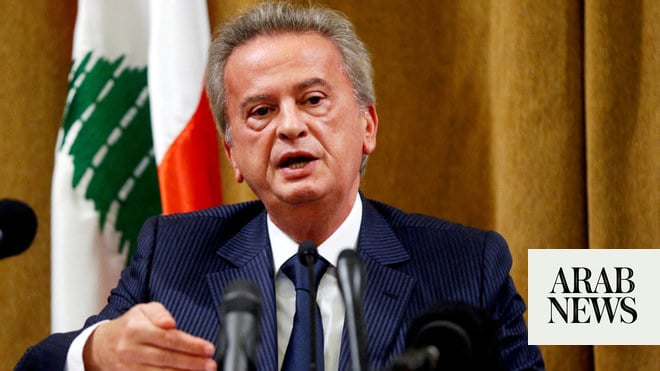
An International Monetary Fund delegation began meetings with Lebanese government officials on Thursday to provide advice on dealing with the countrys crippling economic and financial crisis amid concerns that it might default on its Eurobond debt payment for the first time.
The IMF experts first held talks in the morning with Prime Minister Hassan Diab, who after the meeting headed to the presidential palace in Baabda for a Cabinet session. The delegation stayed on at the Grand Serail in central Beirut for talks with Diabs advisers and left afterward without speaking to journalists.
Information Minister Manal Abdul-Samad quoted Diab as saying in the Cabinet meeting that he hopes the meetings with the IMF will lead to results that “will help the country on the financial, social, economic and living conditions levels.”
“We have started today the first step in solving an accumulation of wrong policies adopted over the past 30 years that led the country to the collapse that we are now living,” Diab said, according to Abdul-Samad.
Diab said public debt has “hemorrhaged state funds” and said corruption and overspending has also emptied state coffers.
Earlier this week, IMF Spokesman Gerry Rice said that the team will listen to Lebanese officials views on how they plan to face the countrys economic difficulties and provide “broad technical advice” on policies to deal with the challenges facing the economy.
“Lebanon has not requested financial assistance from the IMF,” Rice said.
Lebanese Finance Minister Ghazi Wazni said in comments released by his office that the IMF delegation will discuss what advice it can give regarding a rescue plan that officials are preparing for the country.
Lebanon has been suffering from slow growth, high unemployment and decades of widespread corruption and mismanagement that have triggering nationwide protests against the political elite since mid-October.
The local currency has lost nearly 60% of its value on the black market. Lebanon also has a massive debt, standing at $87 billion — 150% more than the countrys GDP. Amid a severe liquidity crunch, banks have imposed informal capital controls, limiting withdrawals to a few hundred dollars a month.
The chairman of the Association of Banks in Lebanon, Salim Sfeir, met President Michel Aoun on Thursday to discuss paying Eurobonds that mature March 9 worth $1.2 billion. Lebanese officials have been discussing whether to pay on time — as they have always done in the past — or default.
Sfeir said after the meeting a solution must be found quickly because the price of Lebanese Eurobonds is dropping on international markets “making Lebanese banks suffer losses and come under increasing pressure.”
As the crisis deepens, hitting ordinary Lebanese hard, there is no sign of foreign aid. Several states that helped in the past have made clear that any support hinges on Beirut implementing long-delayed reforms to address root causes such as state corruption and bad governance.











